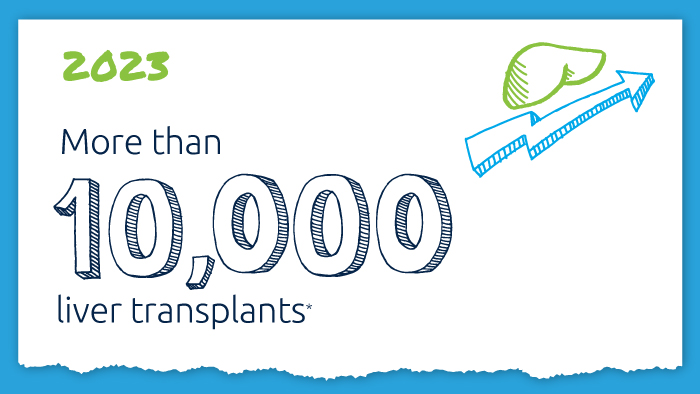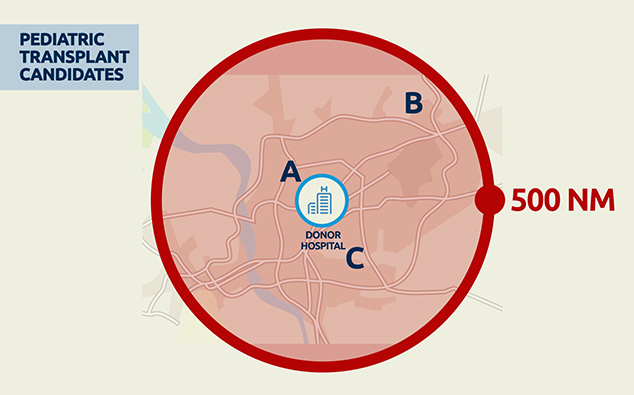In this example, pediatric transplant candidates listed at transplant hospitals A, B or C would all be within the initial level of distribution for compatible donor offers.
More pediatric patients will receive transplants as a result of the new OPTN liver distribution policy.
For pediatric liver donors (younger than age 18), the liver distribution policy passed by the OPTN/UNOS Board of Directors in December 2018 generally increases priority for pediatric candidates before adult candidates other than Status 1A. Livers from pediatric donors will be offered initially to compatible pediatric candidates listed at any transplant hospital within a 500 nautical-mile radius of the donor hospital.
Modeling shows that under the new system:
- More children will receive a transplant
- Fewer people will die waiting
- There will be greater consistency in the geographic areas used to match liver transplant candidates with available organs
Learn how the system will prioritize all liver transplant candidates
In focus

A decade of record increases in liver transplant
10,660 liver transplants, the most ever in a year.
7,000 organs tracked with UNOS Organ Tracking Service
30% of all OPOs use the UNOS Organ Tracking Service to monitor organs in transit.
Over 5,000 organs tracked with UNOS Organ Tracking Service
26% of all OPOs are now utilizing the UNOS Organ Tracking Service to monitor organs in transit.

Four decades of lifesaving work: the Organ Center turns 40
The F.M. Kirby Foundation Organ Center is celebrating its 40th year of continuous operation without any service interruptions

